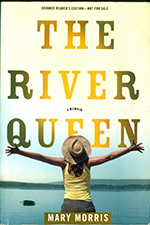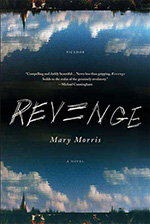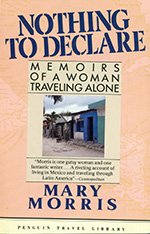 We wouldn’t have
stopped if it weren’t for the donkeys.
There were a dozen or so in the pick-up truck, braying, their heads
sticking from the sides. If it weren’t
for the donkeys, we would have kept going.
And then I wouldn’t have seen you again. “Stop,” I shouted to my husband, Larry, who is accustomed to my
sudden detours. He maneuvered into a
parking spot right next to the truck so that I could get a picture. I didn’t
notice that we were across the road from a huge outdoor market or that the
smoke of grilled meat filled the air.
I didn’t even remember that this was the town where you said you’d
be. All I was thinking about were the
donkeys.
We wouldn’t have
stopped if it weren’t for the donkeys.
There were a dozen or so in the pick-up truck, braying, their heads
sticking from the sides. If it weren’t
for the donkeys, we would have kept going.
And then I wouldn’t have seen you again. “Stop,” I shouted to my husband, Larry, who is accustomed to my
sudden detours. He maneuvered into a
parking spot right next to the truck so that I could get a picture. I didn’t
notice that we were across the road from a huge outdoor market or that the
smoke of grilled meat filled the air.
I didn’t even remember that this was the town where you said you’d
be. All I was thinking about were the
donkeys.
Then we heard
someone shouting, calling my name. I
turned and there you were. You were
eating kebabs and grilled lamb and you started waving. “You must join us,” you all shouted.
We had met only
hours before at a rest stop on the road south of Fez. We were headed to Merzouga on the edge of the Sahara. You were heading south as well. We’d be taking the same road. I’m not sure why you started speaking to
me. Perhaps we smiled at one another. Two women on the road. Or perhaps it was the children playing with
some puppies and I was watching them.
“Do you speak Arabic?” you asked.
I shook my
head. “Do you speak French?” You shook your head. “English?”
Then you asked,
“Italian?”
I do speak Italian
but I was surprised to hear you ask me there on the road to the Sahara. So we found our common language and chatted
as any two women might. I told you
that we were from America. You were
from Erfoud, but you had been living in Genoa for a long time. “Why Genoa?” I asked. Your husband had found work in Genoa in a
metal factory you told me. For some
reason I assumed that the older man who sat in the front seat of the car that
was stuffed to the gills with suitcases and toys was your husband, but I didn’t
ask. I told you my name and you told me
yours. “Latifa,” you said.
I couldn’t resist.
“Queen Latifa?” I asked and you got the joke. We laughed. You asked if I had children. I told you I had a daughter and you told me
I was smart as you pointed to your three who were chasing the puppies near some
shrubs. You worked as a nurses’
aid. I was a teacher. Neither of the men nor the children spoke
Italian. It was as if we’d found a
secret language of women like Nushu, that written language of Chinese women
that men cannot decipher.
And then I asked
if you knew a place for lunch along the way.
We had at least a six hour ride ahead of us. And you told me about a town called Zaida and you said there were
restaurants, but as it is sometimes when I ask directions, I didn’t really
listen to your answer. I vaguely
recalled the town. Then we were ready
to get on the road again. We said our good-byes the way travelers do. Maybe I’ll see you in Zaida, I said. And you said, yes, you must join us for
lunch, but of course we knew we never would. We were just two travelers, coming
together at a rest stop on the road.
We both drove on; we passed one another once or twice. Then Larry and I stopped by the side of the
road for something – a photo, I don’t recall.
And we didn’t see you again.
And now in this
town where we’d stopped because I had to take a picture of a truckload of
donkeys, you were shouting my name.
The five of you
were seated at a wooden table. There
were dozens of these tables and grills going with all kinds of meat and the
older man grabbed two chairs and you made space for us. You didn’t hesitate and suddenly there was
shouting and more food was added to the grill.
More lamb and marinated chicken and kebabs. So much food it was hard to make room for it all. The meats grilled to perfection, yogurt and
flatbread and bottles of orange soda and pop, and olives and onions and we were
all eating, scooping up the food.
The older man, I
soon learned, was your father and he had driven all the way to Tangiers to get
you. I was stunned. That is a very long drive and he was an
elderly man. He and I spoke in French
and somehow we all made ourselves understood.
Your father told me loved his garden.
I told him I loved mine. He had
been a teacher. He had six children and
they were all educated. He loved them
all.
We ate the lamb
with bread and our fingers. You asked about
our daughter. I complimented your
kids. We were mothers and travelers and
that alone gave us much in common. Then your father excused himself and
disappeared. He did not return for the
rest of the meal. When I needed to go
to the bathroom, you pointed to some stairs and I went up. On my way to the ladies room I passed a
carpeted hall and there was your father with perhaps a dozen other man,
prostrate in prayer. For a moment I
paused. He was so tall and lean and
silent, stretched out on the floor.
I made my way to
the bathroom, then back down to where you were. When I got back to the table, your father had returned as
well. We asked about the bill and our
hands were pushed away, our money stuff back into our pockets. You would not hear of it. “C’est tout fait,” your father said. It’s all been taken care of. We exchanged addresses and said our
good-byes.
“Come see us in
Erfoud,” you told me, but we would not be going back that.
“I will call you
when I come to Italy,” I promised and I believed that I would. We drove until the road turned to sand and
the GPS kept telling us to turn around.
But it was the only road. All
the way I kept looking for you, Latifa.
That night in the Sahara we arrived at our hotel, a rather sad place
that had seen better days. We were its
only guests. “It’s about the terrorists,” the owner told us. “No one wants to come here any more.” Around the moon there was a strange white
circle and before us nothing but sand.
Years later I was
going to Genoa and I remembered that you lived there. I was sure that I had written the address down in my journal. I
went through everything. Every scrap of
paper I’d saved from that trip and I never found your address. That was when I realized that I’d never see
you again. In that brief moment when
our lives intersected we had become friends.
During that week in Genoa I walked the city, thinking I’d find you. Perhaps we passed one another on a crowded
street, in a marketplace, but I’ll never know. I wanted to tell you that I
don’t think I’ll ever eat a meal that good again.













Love this !! Enchanted prose and images. And what a memorable journey
ReplyDelete